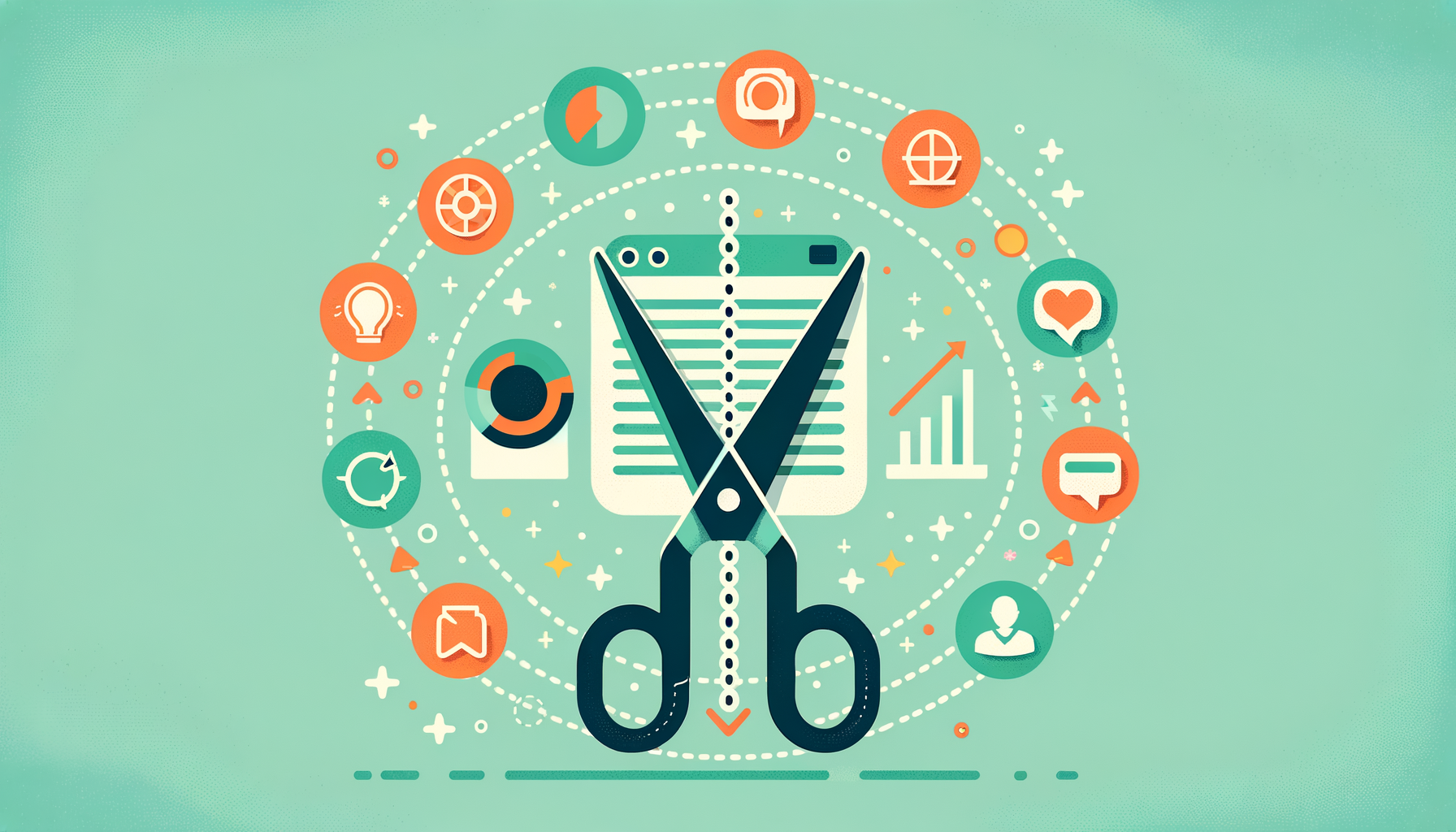We’ve curated a list of the 20 best books about marketing to help you fill your 2019 reading list. Some books on the list address the latest digital marketing trends, while others offer timeless advice on how to appeal to an audience. Whether you’re interested in the psychology behind an effective campaign, or you’re looking for actionable advice on content production, you’ll find something here to advance your knowledge.
1. This is Marketing: You Can’t Be Seen Until You Learn to See
By Seth Godin
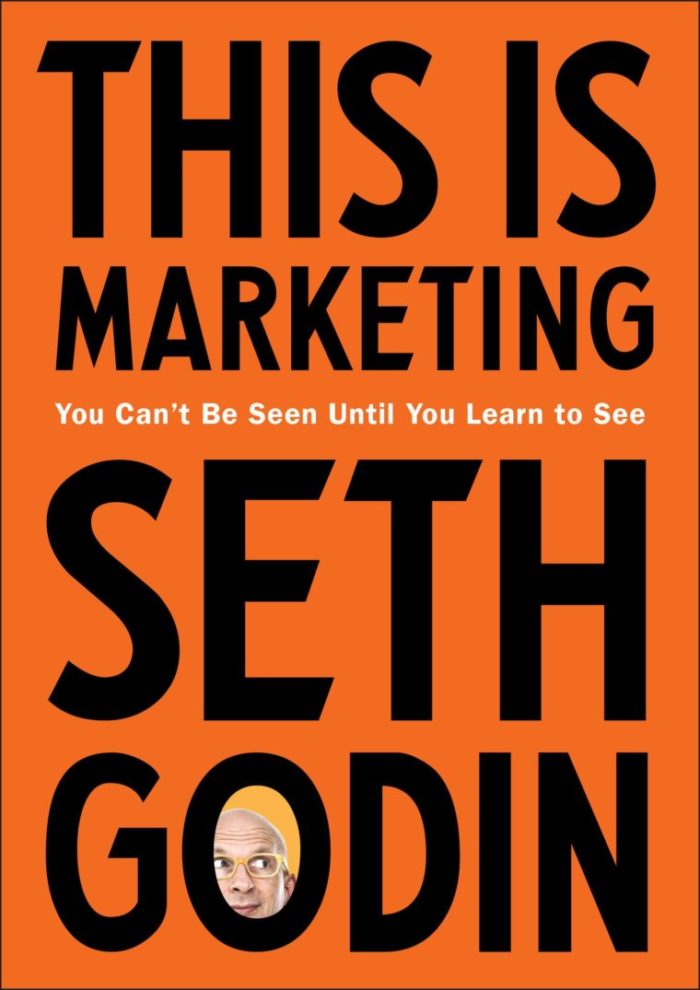
In his latest book, marketing thought leader Seth Godin condenses the core elements of his expertise into a single digestible volume. Godin starts from the position that the best marketers use their talents to solve other people’s problems, not their own business challenges. By placing the consumer in the spotlight, Godin argues that campaigns can generate real value for the business.
„This is Marketing“ teaches readers how to build trust with consumers through storytelling and strategic positioning. It’s a great book for readers both familiar with and new to Godin’s take on modern marketing.
2. Building a StoryBrand: Clarify Your Message So Customers Will Listen
By Donald Miller
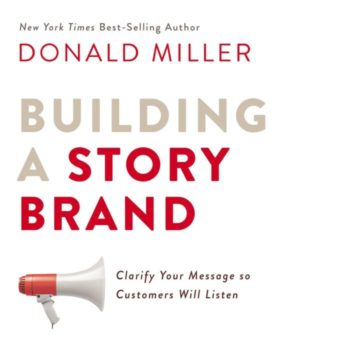
In his bestselling book, StoryBrand CEO Donald Miller describes the seven elements common among powerful stories that connect businesses to their target customers. The lessons explored throughout the book are universal, and Miller shows how small businesses and multi-billion dollar companies alike can implement his strategies.
Anyone who builds or contributes to multichannel marketing campaigns will benefit from the book’s agnostic approach to content. Miller touches on everything from web copy to old-fashioned brochures and everything in between.
3. The Tipping Point: How Little Things Can Make a Big Difference
By Malcolm Gladwell
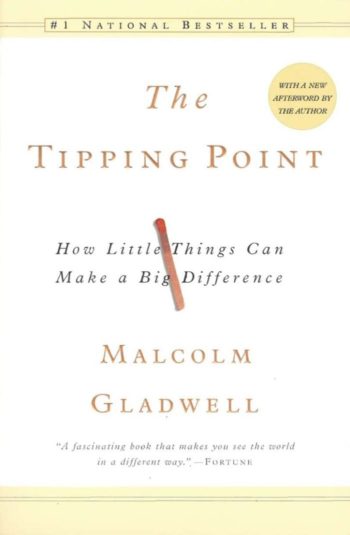
Published in 2002, Malcolm Gladwell’s „Tipping Point“ has remained a best selling book ever since. The crux of Gladwell’s argument is simple: Societal change can happen fast when the conditions are right. But where things get complicated is when Gladwell uses psychological research and economic principles in an attempt to understand the critical tipping point.
Gladwell posits that only a small set of individuals with a „rare set of social gifts“ is required to enact large-scale change. Throughout the book, he calls on examples from diverse industries to illustrate this phenomenon, pulling out valuable observations in each chapter.
4. The 1-Page Marketing Plan: Get New Customers, Make More Money, And Stand Out From The Crowd
By Allan Dib
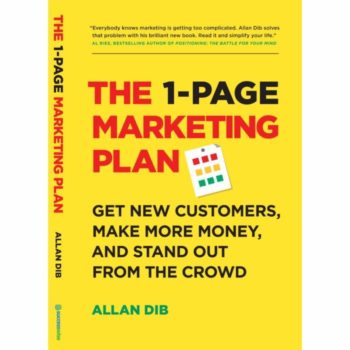
New marketers often fall into the trap of thinking they know more about their target audience than they really do. And when one campaign fails, they move on to another strategy without closely analyzing why the first didn’t succeed.
In his book, entrepreneur Allan Dib walks readers through his one-page marketing plan, which uses agile strategies to help marketers get to the root of their pain and relieve it in a methodical manner.
5. Contagious: Why Things Catch On
By Jonah Berger
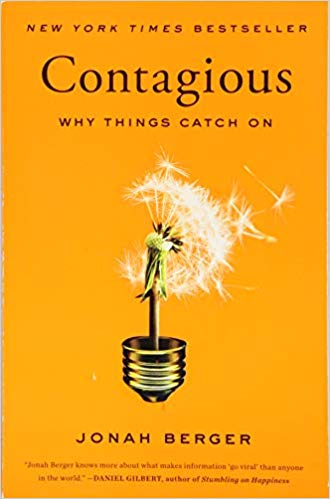
Why do some things go viral when others don’t? This is the question New York Times best-selling author Jonah Berger tackles in his critically acclaimed book. In his research at the Wharton School at the University of Pennsylvania, Berger studied why articles get shared online, why some products succeed where others fail and how social influence shapes consumer desires.
The lessons drawn within this well-researched book can apply to marketing efforts in any industry, making it a must-read for anyone who wants to reach the masses.
6. The End of Competitive Advantage: How to Keep Your Strategy Moving as Fast as Your Business
By Rita Gunther McGrath
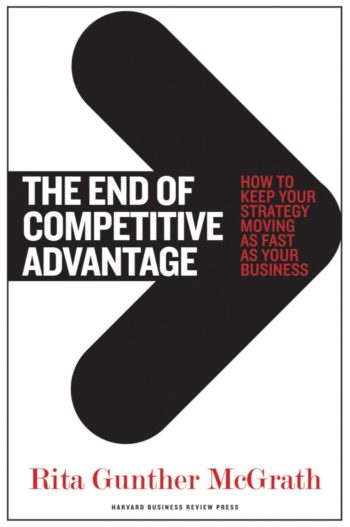
No marketing strategy is timeless, and yet many organizations refuse to adapt to the times. This is the chief focus of Columbia Business School professor Rita Gunther McGrath’s book on agile business development.
McGrath’s argument rests on the revolutionary idea that sustainable strategies simply no longer exist. She poses the idea that the rapid advancement of technology has made it impossible for any business to rely on a single strategy for very long. Using examples from globally recognized brands, „The End of Competitive Advantage“ explores how businesses can capture opportunities quickly and exploit them decisively.
7. Powering Content: Building a Nonstop Content Marketing Machine
By Laura Bushe
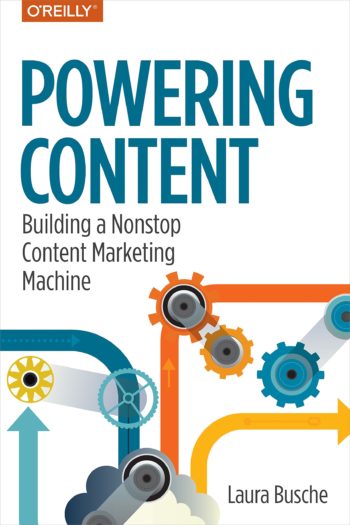
With a focus on product marketers, author Laura Bushe’s latest book takes readers on a step-by-step journey through the production of compelling content. Using insights from the world of psychology, design and business development, Bushe provides readers with worksheets and practical exercises for creating content that engages readers.
The book’s three sections explore content strategy tips, the craft of writing and designing assets and content production management. This is a great read for entrepreneurs who are new to the world of content marketing.
8. How to Win Friends and Influence People
By Dale Carnegie
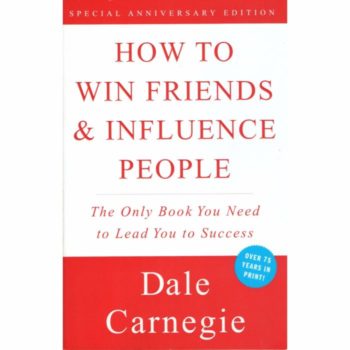
Originally published in 1936 during the Great Depression, Dale Carnegie’s influential self-help book is still as relevant today. Though not directly related to marketing, the book’s lessons on interpersonal relationships are highly valuable to anyone who needs to convince others to take action.
Specifically, Carnegie utilizes his experience as a teacher of public speaking to explain how people react to praise, criticism and complaints, why audiences are interested in some people but not others, and the power of listening. It’s a necessary read for anyone seeking success in the business world.
9. Everybody Writes: Your Go-To Guide to Creating Ridiculously Good Content
By Ann Handley
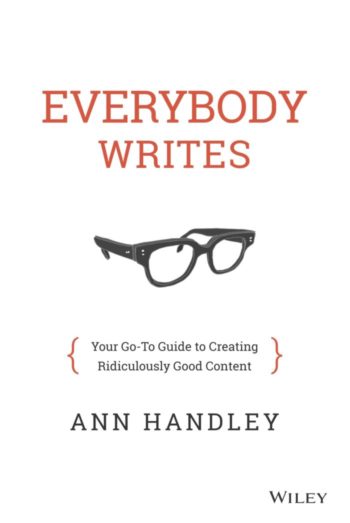
Marketing veteran Ann Handley does not believe the world is separated into writers and non-writers. Thanks to the internet, everyone writes daily and reads voraciously. The quality of our written words may differ greatly, but they are more important than ever, Handley argues.
In the book, Handley offers guidance on how to choose the right words and style to evoke an empathetic response in readers. She addresses common mistakes and provides easy-to-follow advice on how to turn humdrum writing into engaging content.

10. Ogilvy on Advertising
By David Ogilvy
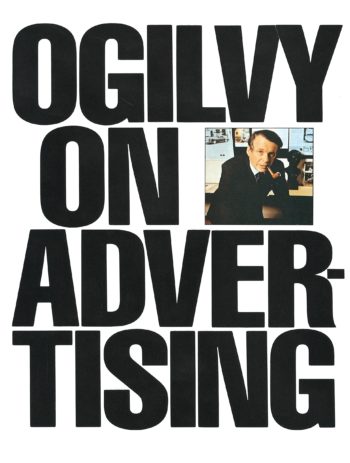
Known as the „Father of Advertising,“ David Ogilvy was a student of human behavior. Through work with the Gallup research organization, Ogilvy was a pioneer in the study of consumer habits.
This 1983 book collects a lifetime of knowledge and presents it in an easy-to-digest style. Compared with the other books on this list, Ogilvy’s treats copywriting more as an artform than a business tool. Not only does he focus on the psychological underpinnings of good ad copy but also the aesthetic characteristics that make advertisements enjoyable to consume.
11. Tested Advertising Methods
By John Caples
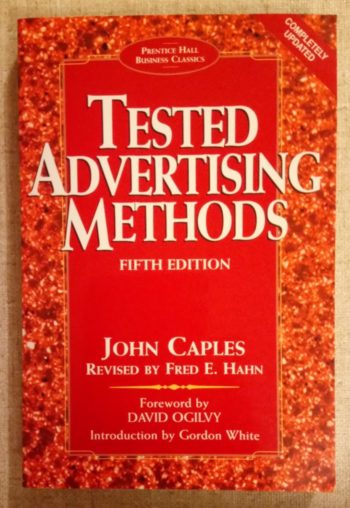
In this seminal work on the qualitative analysis of advertising performance, John Caples includes four full chapters on how to write effective headlines. Though written in 1980, the important lessons found in „Tested Advertising Methods“ are still applicable today.
In an age of clickbait, Caples‘ chapters on headlines can show modern content producers how to engage readers through strong emotional appeals. Likewise, his advice on direct-mail advertising directly correlates to today’s cold email marketing strategies. Anyone looking for practical advice on how to fine-tune campaigns will gain valuable takeaways from this book.
12. Inbound Marketing: Attract, Engage, and Delight Customers Online
By Brian Halligan and Dharmesh Shah
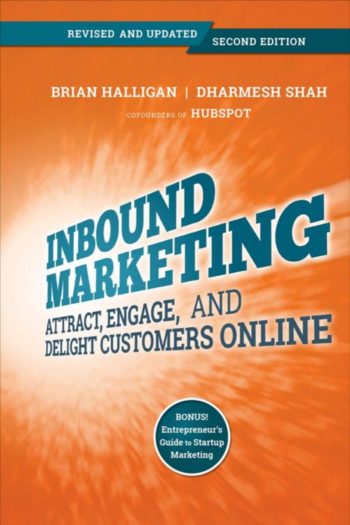
Written by the co-founders of Hubspot, this 2014 book is an excellent introduction to inbound marketing. Halligan and Shah touch on topics such as how to gain visibility in a crowded market, how to convert prospects into customers and how to address tough challenges.
Focusing on strategy, „Inbound Marketing“ gives advice on how to learn about an audience and leverage that knowledge to generate engaging campaigns. Beyond content production, the book also contains advice for managers and other stakeholders who need to quickly assess market conditions to make business decisions.
13. Start with Why: How Great Leaders Inspire Everyone to Take Action
By Simon Sinek
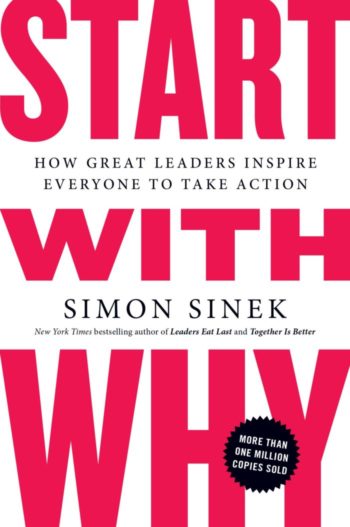
Why are some organizations more successful than others? Why do some people command respect and admiration when others don’t? These are the foundational questions that open Simon Sinek’s book on leadership.
„Start with Why“ expands upon the inspirational ideas presented in Sinek’s TED Talk, which is the 3rd most popular TED video of all time. The core idea of Sinek’s thesis is that successful leaders understand why their business operates, not just how it functions.
14. The Agile Marketer: Turning Customer Experience Into Your Competitive Advantage
By Roland Smart
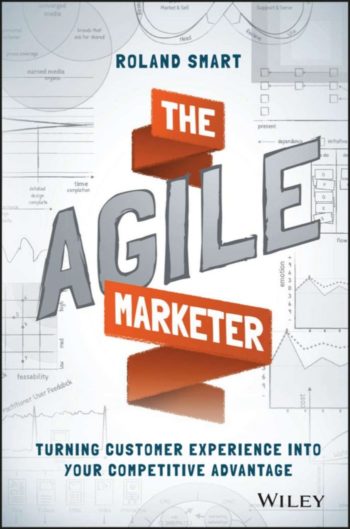
Pantheon’s VP of Marketing Roland Smart applies agile methodologies to digital marketing strategies in his 2016 book. Smart analyzes how agile concepts transformed software development and lays out how they can benefit marketers today.
Anyone interested in growth hacking should check out „The Agile Marketer,“ which shows how agile can align marketing and product management to create new opportunities. Importantly, Smart describes how agile builds strategic alignment between CMOs and other members of the C-suite.
15. Buyology: Truth and Lies About Why We Buy
By Martin Lindstrom
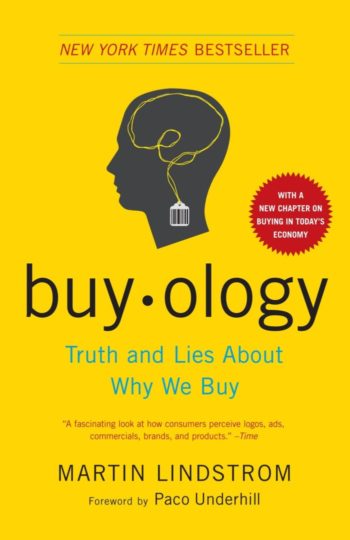
Named one of TIME Magazine’s 100 most influential people in 2009, Martin Lindstrom has made a significant impact on the use of neuroscience in marketing. Buyology is the followup to his book „Brand Sense,“ which described how marketers could appeal to the five senses to create immersive customer experiences.
In Buyology, Lindstrom moves from the bodily senses to the inner workings of the human brain, asking questions like „Does sex sell? If so, to what extent?“ He then seeks to provide answers using brain scan technology and psychological research.
16. Get Content Get Customers: Turn Prospects into Buyers with Content Marketing
By Joe Pulizzi and Newt Barrett
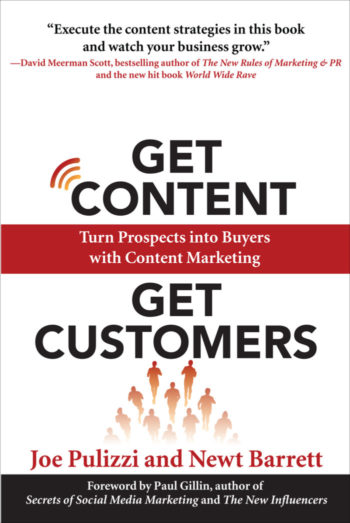
Whether you’re new to the world of content marketing, or you’re looking for a broader perspective on the subject, this is the book for you. Content Marketing Institute founder Joe Pulizzi describes how content marketing emerged as the important strategy it is today.
Featuring real-world case studies, hard-earned insights and actionable lessons, „Get Content Get Customers“ shows its readers how to approach content production as a strategy for growth. Pulizzi also demonstrates how content can be utilized effectively in industries as varied as retail, law and insurance software development.
17. Buyer Personas
By Adele Revella
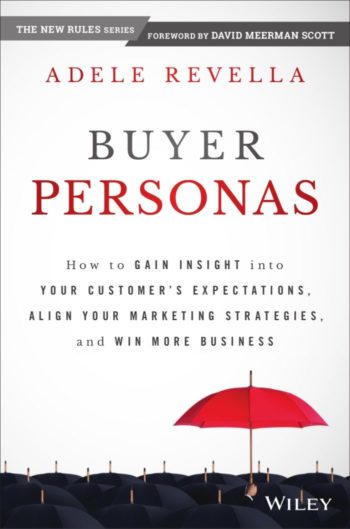
Buyer personas are an important marketing tool, and it’s clear that author Adele Revella understands them better than most. As CEO of the Buyer Persona Institute, Revella leads workshops across the globe, helping companies like Cisco and ADP to build highly effective marketing campaigns.
Her book on the subject condenses her award-winning strategies into a guide for marketers big and small. Revella walks readers through the process of conducting effective market research as well as how to leverage new knowledge to facilitate a plan of action.
18. Selling the Invisible: A Field Guide to Modern Marketing
By Harry Beckwith
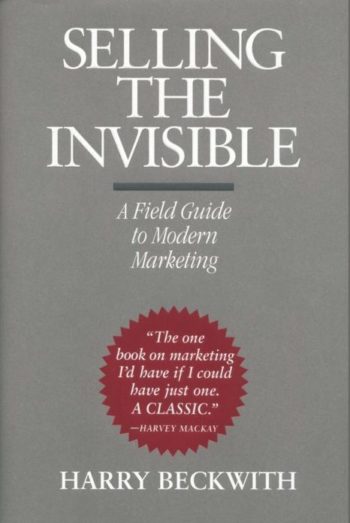
„Selling the Invisible“ acknowledges the fact that marketing intangible services is often more difficult than advertising products. Without a strong visual component, services require a unique marketing approach.
From health care to entertainment, author Harry Beckwith provides examples of how successful organizations can leverage relationship-building techniques to make valuable connections with customers. Throughout the book Beckwith shows how customer service and relationship management can solve many of the modern marketer’s toughest challenges.
19. Understanding Comics: The Invisible Art
By Scott McCloud
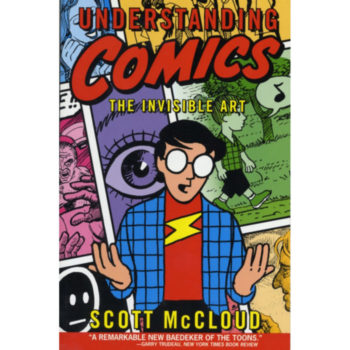
In the digital age, the power of imagery is more apparent than ever before. Customers see hundreds if not thousands of images every day – so how do marketers make theirs stand out?
Though about comics specifically, McCloud’s delightful book features several chapters on imagery as a communication device. He takes a deep look at how symbols, meaning and reflection collide in the form of comics to create powerful emotional experiences. The lessons are highly relevant to visual marketers.
20. How to Shoot Video That Doesn’t Suck: Advice to Make Any Amateur Look Like a Pro
By Steve Stockman
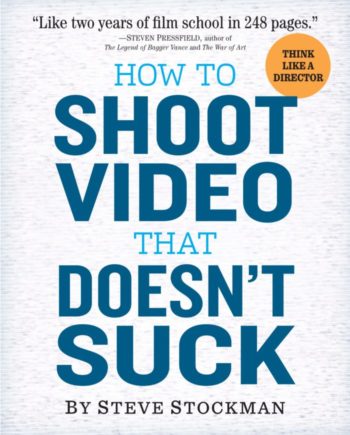
Video is quickly overtaking all other forms of content as the primary source of web traffic. As a marketing tool, it is quickly becoming a standard of any campaign. As video content grows in popularity, customer expectations will inevitably rise.
In „How to Shoot Video That Doesn’t Suck,“ Steve Stockman provides guidance to amateur videographers. He covers framing, lighting, sound, editing and special effects in short, digestible chapters that get straight to the point. Fittingly, the book has an accompanying web series online.
These books can help you develop marketing strategies that contribute to your business’s growth and success. Happy reading!



